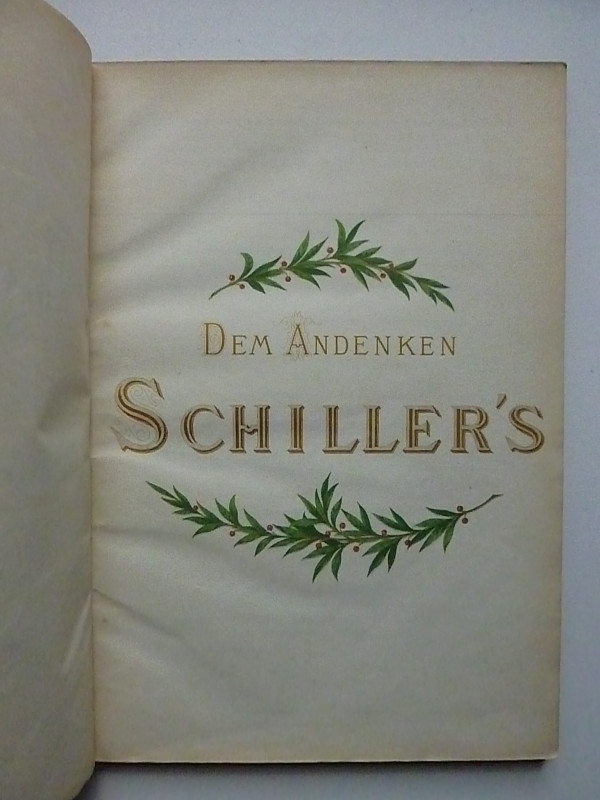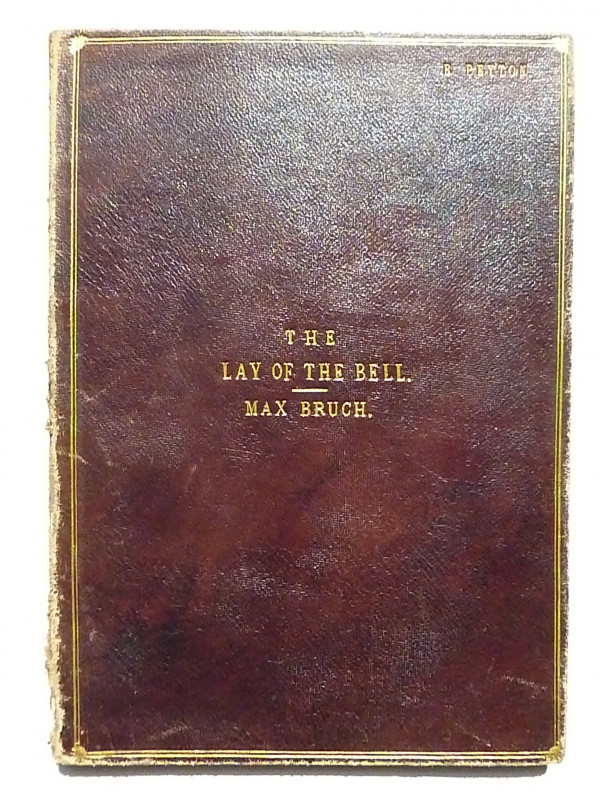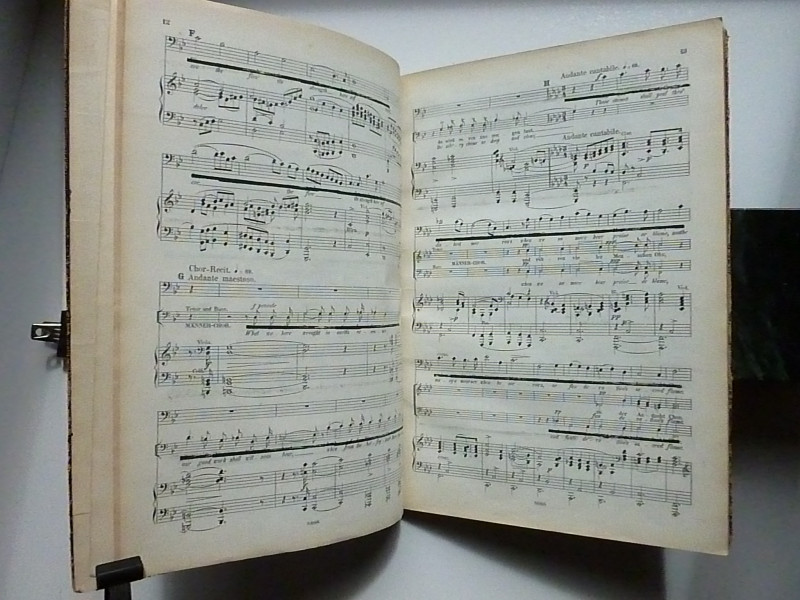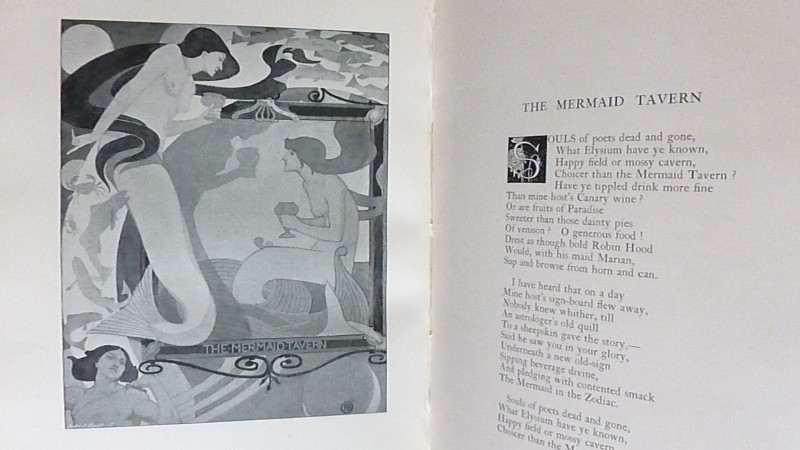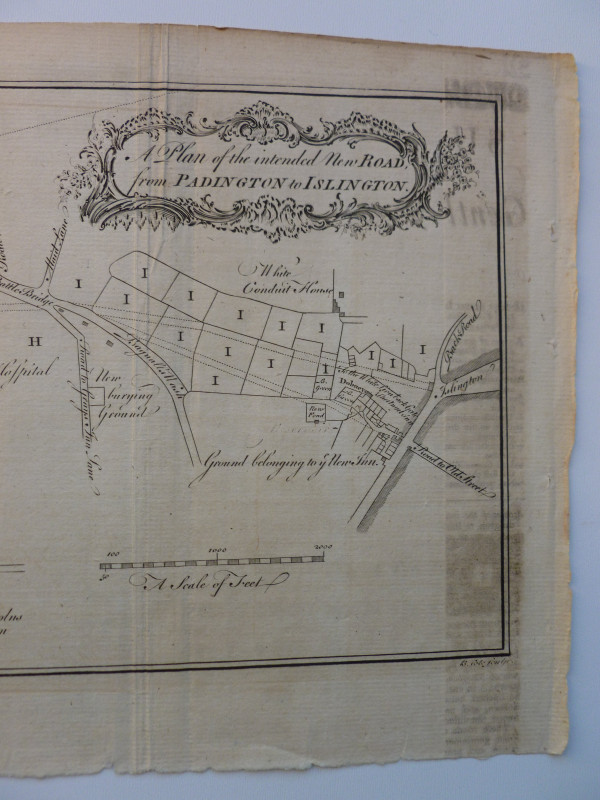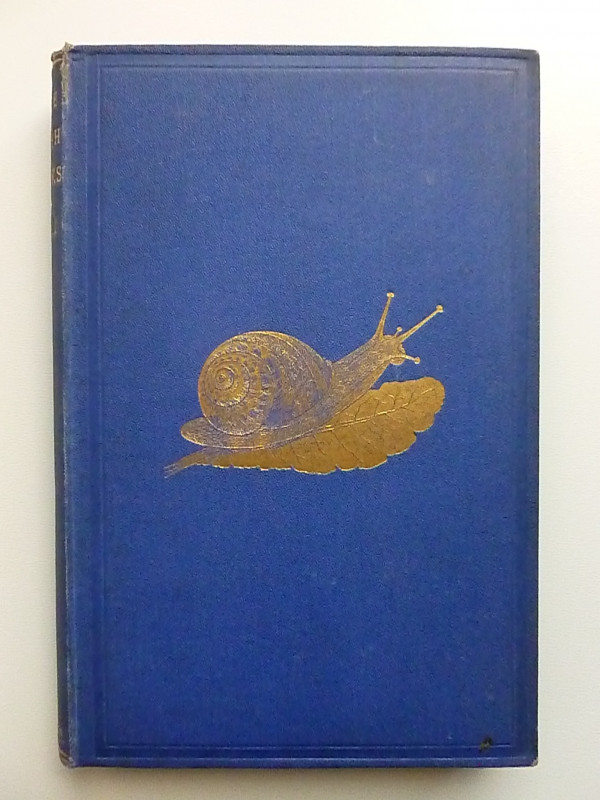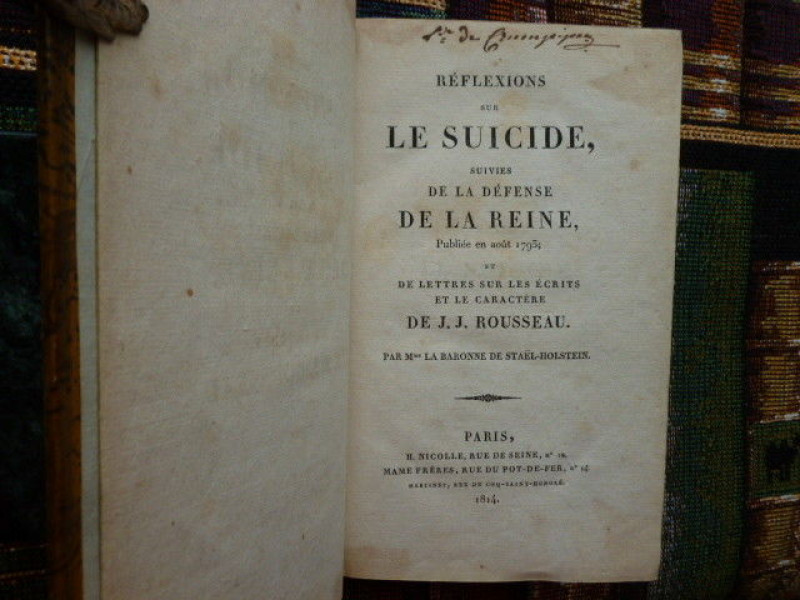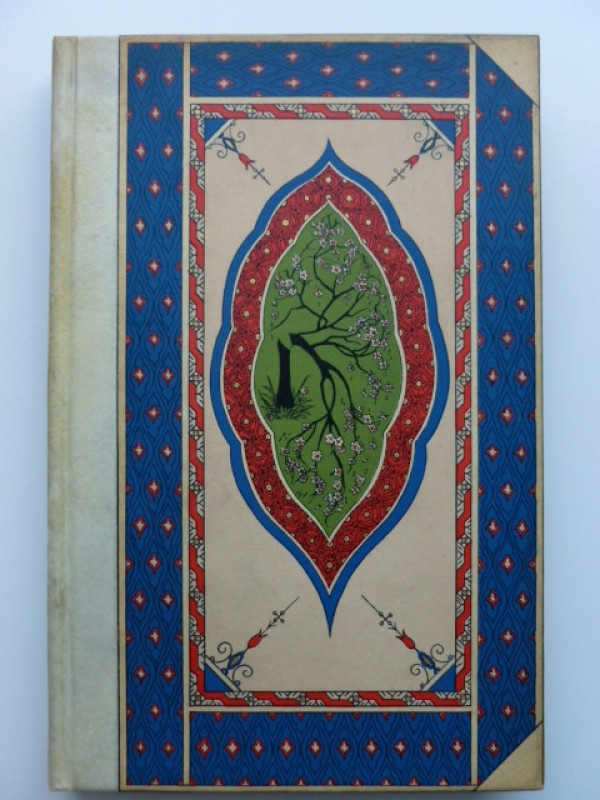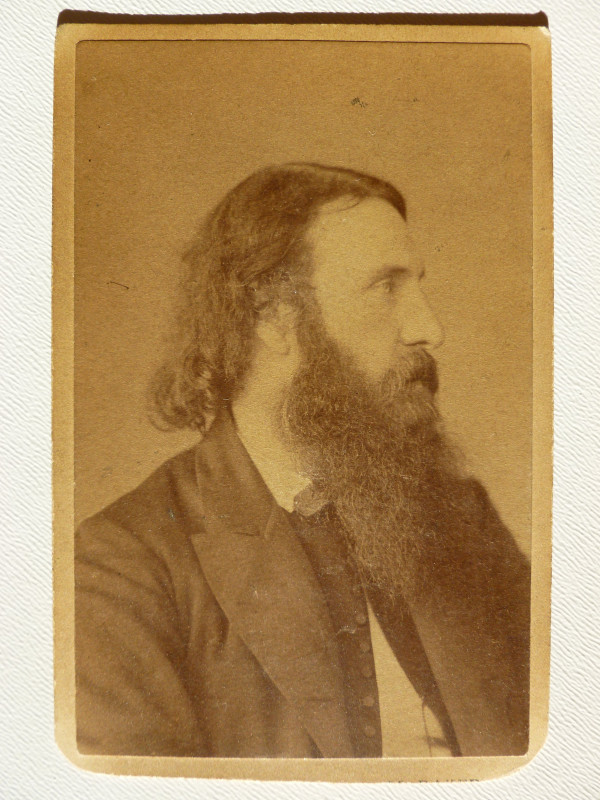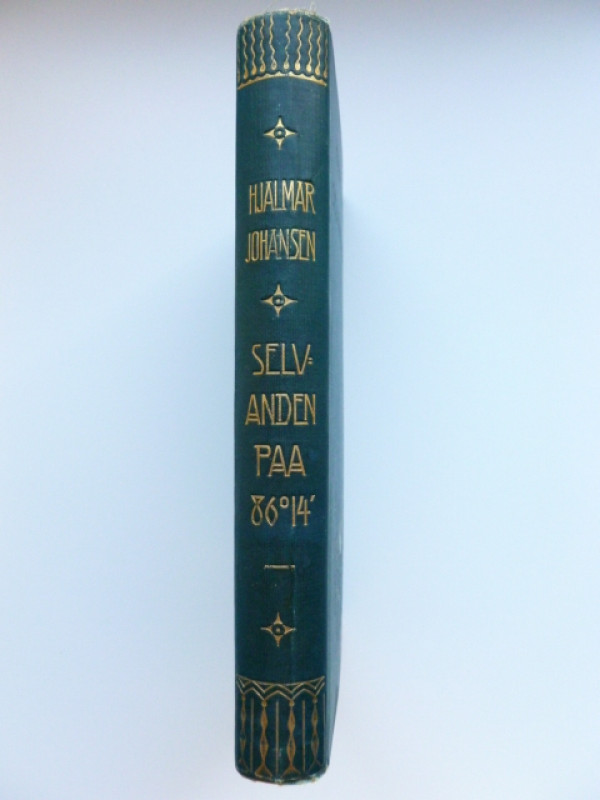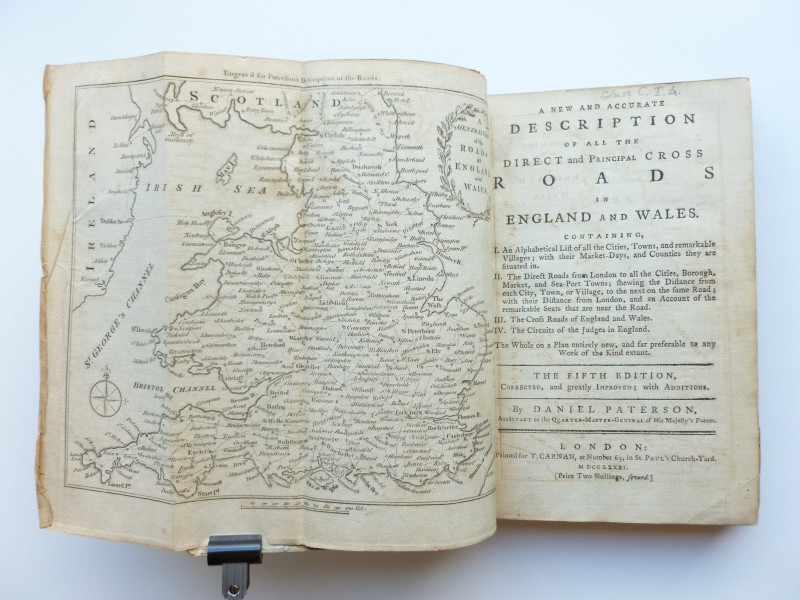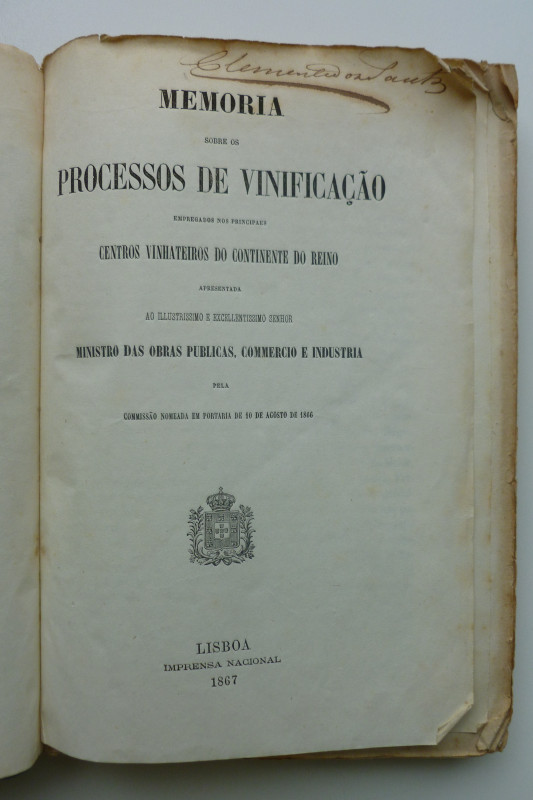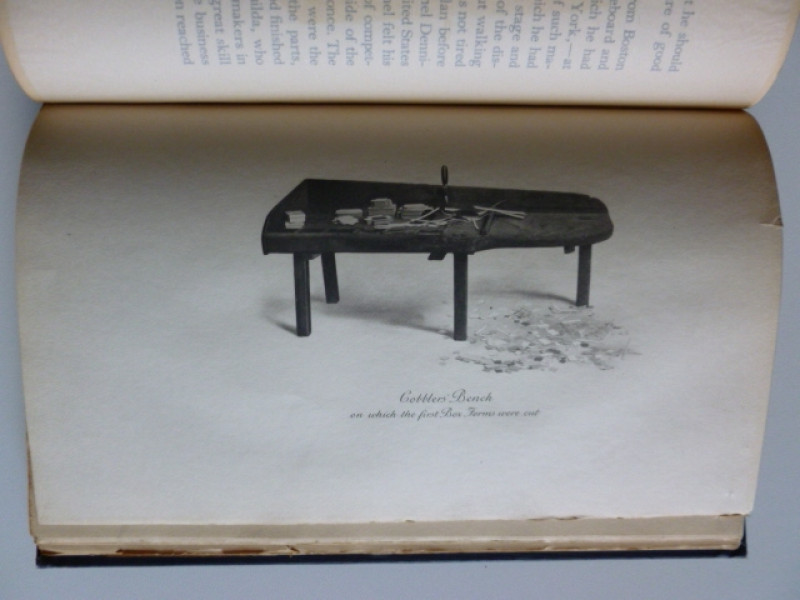Das Lied von der Glocke. Gedicht von Friedrich von Schiller für Chor, vier Solostimmen, Orchester und Orgel. Op. 45. Translated into English by Mrs Natalia Macfarren.
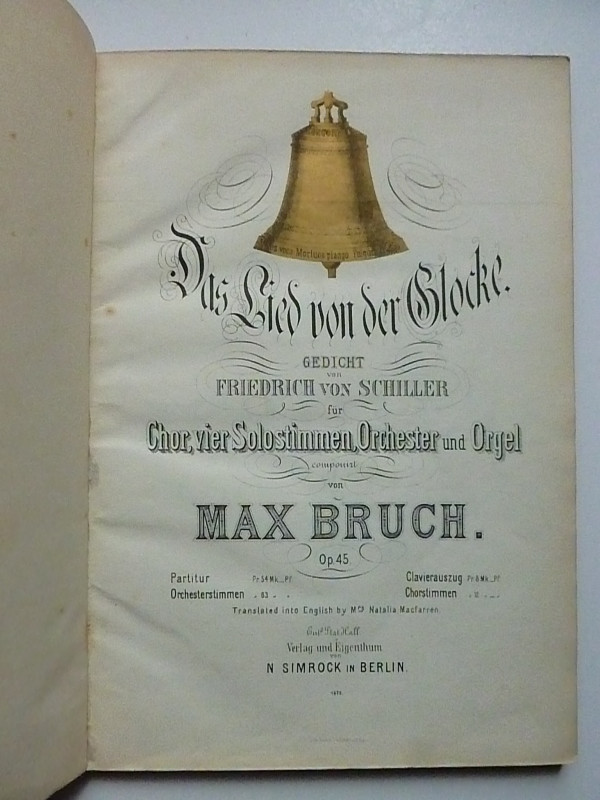




Book Description
First edition. Small 4to (265 x 185), lithographic title-page printed in black and gold, colour printed lith. dedication page. Former owner's name stamped on front cover: R. Peyton, very likely Richard Peyton (1825 - 1910), a Birmingham businessman and a patron of music. He endowed the Chair of Music at the University of Birmingham in 1908 on the condition that the post would be offered to Edward Elgar, who accepted the post. Richard Peyton was connected with the Birmingham Triennial Musical Festivals between 1858 and 1879, for many years chairman of the Festival committee.
Dealer Notes
Max Christian Friedrich Bruch (1838-1920) also Max Karl August Bruch (pseud.)
“Although he was raised Rhenish-Catholic, the National Socialist party banned his music from 1933-1945 due to his name, his well-known setting of a melody from the Jewish Yom Kippur service, and his unpublished Drei Hebräische Gesange for mixed chorus and orchestra (1888).”--Musikproduktion Höflich
Das Lied von der Glocke, a secular oratorio in two parts consisting of 27 numbers was premiered in Cologne in 1878 conducted by Bruch himself. It was first performed in England at the Birmingham Triennial Festival of 1879. The work is dedicated to the memory of Schiller whose poem is an allegory, using the stages involved in the casting of a bell to portray the episodes from birth to death in human life.
British composer Ralph Vaughan Williams studied with Bruch.
Natalia Macfarren (1827–1916) born Clarina Thalia Andrae, German operatic contralto and pianist, translator of German poetry, songs and libretti into English. Her translation for the finale text of Beethoven’s “Ode to Joy” became the most popular translation in England.
See also: Christopher Fifield, 'Max Bruch - His Life and Works' (2005, Boydell)
“Although he was raised Rhenish-Catholic, the National Socialist party banned his music from 1933-1945 due to his name, his well-known setting of a melody from the Jewish Yom Kippur service, and his unpublished Drei Hebräische Gesange for mixed chorus and orchestra (1888).”--Musikproduktion Höflich
Das Lied von der Glocke, a secular oratorio in two parts consisting of 27 numbers was premiered in Cologne in 1878 conducted by Bruch himself. It was first performed in England at the Birmingham Triennial Festival of 1879. The work is dedicated to the memory of Schiller whose poem is an allegory, using the stages involved in the casting of a bell to portray the episodes from birth to death in human life.
British composer Ralph Vaughan Williams studied with Bruch.
Natalia Macfarren (1827–1916) born Clarina Thalia Andrae, German operatic contralto and pianist, translator of German poetry, songs and libretti into English. Her translation for the finale text of Beethoven’s “Ode to Joy” became the most popular translation in England.
See also: Christopher Fifield, 'Max Bruch - His Life and Works' (2005, Boydell)
Author
Bruch, Max and Friedrich von Schiller
Date
1879
Binding
Full roan binding. Gilt lettered spine and cover within gilt border “The lay of the bell, Max Bruch”.
Publisher
Berlin: N. Simrock
Condition
Internally very good. The German text partly struck out, spine scuffed and starting at foot, some wear to cover edges.
Pages
pp. 160
Friends of the PBFA
For £10 get free entry to our fairs, updates from the PBFA and more.
Please email info@pbfa.org for more information
